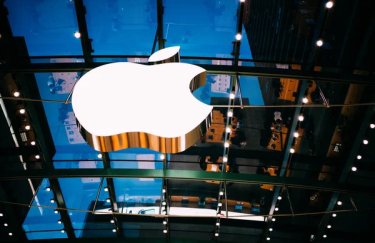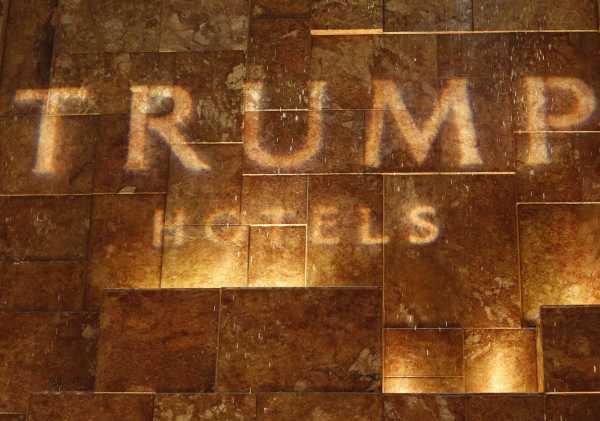
Michael Cohen’s guilty plea in special counsel Robert Mueller’s investigation on Thursday threatens to unveil an explosive possible reason why President Donald Trump adamantly wants friendly ties with Russia — a long-sought real estate deal.
A court document filed by Mueller states that Cohen — Trump’s former personal lawyer and fixer — lied to Congress at least three separate times about plans to build a Trump Tower in Moscow with Trump’s name prominently featured on top.
Cohen testified to Congress that negotiations to build Europe’s tallest building stopped in January 2016. But emails and other communications obtained by multiple news outlets, and now basically confirmed by Cohen, show those negotiations actually continued much longer: into at least June 2016, after Trump had already become the Republican Party’s nominee. And Buzzfeed News reported on Thursday that Trump’s company planned to give the $50 million penthouse in the building to Russian President Vladimir Putin.
That matters, because it puts Trump’s praise of Russia and Putin in a whole new light — what most animated his warmth may have been personal profit. What’s more, it’s entirely possible that Trump knew a close confidante willingly lied to Congress earlier in the investigation.
It looks like Mueller is intimately aware of those communications, too — and he now has Cohen’s full cooperation. That could spell trouble for Trump, because has long said he never had anything to do or at stake with Russia, but that’s clearly not the case.
Yet Trump seems unfazed. After the Cohen plea deal was announced Thursday, Trump told reporters that he never really cared about the tower project and was focused solely on running for president. “I wasn’t trying to hide anything,” he said, adding that “we decided — I decided ultimately not to do it. There would have been nothing wrong if I did do it.”
But what’s clear is that Cohen not only spoke to Trump about the plans during the campaign, but that the Trump Organization was in contact with high-level Russian officials at the same time.
Put together, it’s very possible that Trump’s desire for friendly US-Russia relations has less to do with what’s good for America and more to do with what’s good for him.
What follows is a review about the many years Trump tried to do business in Russia, what Cohen specifically lied about, why he may have lied — and how it could impact the president.
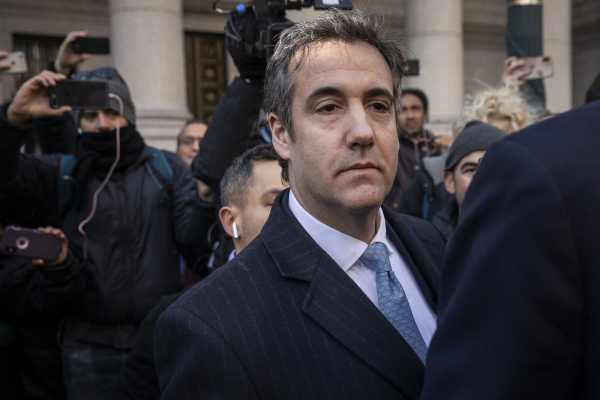
Trump wanted to build in Moscow for decades
Before we get to Cohen’s lies about the so-called “Trump Tower Moscow” project, it’s important to know this: The president’s claim that he never cared about building something in Russia doesn’t track with his many failed attempts to do so over 30 years.
“Russia is one of the hottest places in the world for investment,” Trump said in a 2007 deposition. “We will be in Moscow at some point.”
Let’s start from the beginning. In his 1987 book The Art of the Deal, for example, Trump wrote that he spoke with then-Soviet ambassador Yuri Dubinin “about building a large luxury hotel across the street from the Kremlin in partnership with the Soviet government.” Trump actually traveled to the country that year to scout locations.
That didn’t pan out, but he kept trying. In 1996, the Trump Organization briefly explored a potential deal, but it proved fruitless.
In 2005, Trump’s company signed a one-year deal with the Bayrock Group to push a construction project in Moscow through. One of the real-estate firm’s leaders was the Russian-born and mafia-linked businessman Felix Sater. Working with Russian investors, Sater found an old pencil factory he believed could be destroyed and replaced with a luxurious skyscraper.
Sater and Trump grew their rapport during that time, Sater said during sworn testimony in an unrelated libel case. He also recalled keeping Trump informed about the deal’s progress.
“I handled all of the negotiations,” he said. He added that his interactions with Trump were “more of verbal updates when I’d come back, pop my head into Mr. Trump’s office and tell him, you know, ‘Moving forward on the Moscow deal.’ And he would say, ‘All right.’ ”
“I showed him photos, I showed him the site, showed him the view from the site. It’s pretty spectacular,” he continued.
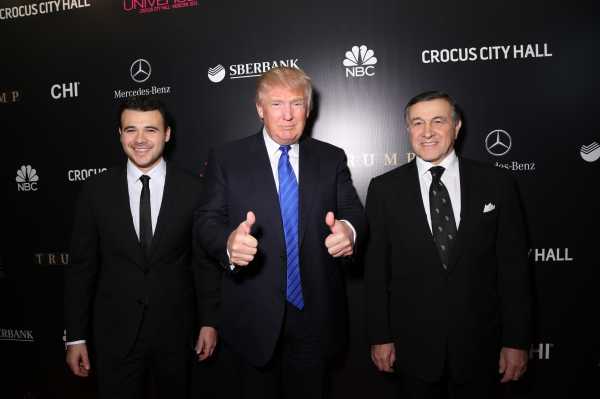
That deal never materialized, but Sater would remain in the Trump Organization’s orbit. In 2006, Donald Trump Jr. and Ivanka Trump traveled with Sater in Moscow. While there, Sater took the Trump children on a tour of the Kremlin — during which Ivanka even sat and spun around in Putin’s chair while the Russian president wasn’t around.
(Vox reached out to Sater for comment, but he has not responded as of publication time.)
In November 2013, Trump traveled to Moscow for the Ms. Universe pageant. It’s around this time that Trump’s desire to do business in Russia seemed to grow even stronger.
Months before going, Trump tweeted his hope that he and Putin would become close at the event. Because no major deal in Russia really gets done without high-level support from the Kremlin, Trump surely knew a good relationship with Putin would remove obstacles toward a final agreement.
And although during that trip Trump only spent two nights at the Ritz Carlton in Moscow, the site of some salacious allegations against Trump, a lot happened. For one, two real estate impresarios — Alex Sapir and Rotem Rosen, who both have connections to Putin’s cohorts — joined Trump in Russia and worked to make a real-estate deal happen.
Trump also filmed a small part in a music video for pop star Emin Agalarov, the son of Aras Agalarov, a Russian billionaire tycoon with ties to Putin. Aras has previously claimed he helped Trump meet with local and foreign business leaders to discuss real-estate opportunities.
Afterward, Trump tweeted his pleasure with the trip and the Agalarovs — even referencing his wishes for a future “TRUMP TOWER-MOSCOW.”
Still, however, no real-estate deal materialized.
Trump’s company made a 2015 Moscow tower bid
Trump announced his candidacy for president in July 2015 — and Sater saw an opportunity.
“I figured, he’s in the news, his name is generating a lot of good press,” Sater told BuzzFeed News on May 17. “A lot of Russians weren’t willing to pay a premium licensing fee to put Donald’s name on their building. Now maybe they would be.”
This is where Michael Cohen really comes into the story.
Sater organized a meeting with Cohen — who at the time was representing Trump — in September 2015 to discuss having Trump license his name on a Russian-built edifice. Trump’s company wouldn’t actually construct the tower, but it would put his name on the structure and receive a portion of the revenue it generated. The two men came to an accord: Sater would find the builder and financiers for the project, while Cohen would ensure Trump signed the final agreement.
Sater was very confident. “I will get Putin on this program and we will get Donald elected,” Sater emailed Cohen. “Buddy our boy can become President of the USA and we can engineer it. I will get all of Putins [sic] team to buy in on this.”
The Russian-born businessman worked his contacts, and on October 12, 2015, emailed Cohen that Putin and a “top deputy” would meet with a surrogate for Sater in Moscow. What’s more, a Russian bank — VTB Bank — would fund the project. (The bank’s chair, Andrey Kostin, however, denies ever meeting Sater and says that his organization was never involved in a Trump Tower plan.)
One day later, Sater sent a nonbinding letter of intent, signed by Andrey Rozov, a well-to-do Moscow developer, to Cohen. The 17-page document would allow Cohen to negotiate the licensing deal with the Russians once Trump signed it. Some of the proposals in it are striking, including that it would be 100-stories tall with a pointy top and that any spas or fitness areas be branded “The Spa by Ivanka Trump.”
Trump eventually signed the letter of intent on October 28, 2015 — the same day as the third Republican presidential debate. Cohen afterward wrote to Sater and Rozov “we are truly looking forward to this wonderful opportunity.”
“Everything will be negotiated and discussed not with flunkies but with people who will have dinner with Putin and discuss the issues and get a go-ahead,” Sater wrote Cohen on November 3. “My next steps are very sensitive with Putin’s very, very close people. We can pull this off.”
They eventually had a falling out, in part because Sater couldn’t deliver. The effort died.
Cohen lied about the 2015 “Trump Tower Moscow” effort
So there are all these efforts by the Trump Organization over the years to develop this Trump Tower property. No big deal, right? After all, Trump was a real-estate mogul for most of his life — developing real-estate properties is what he does. What’s so wrong with that?
By itself, probably nothing. The critical question, though, is whether Trump’s desire to develop this property compromised him during his presidential campaign — making him more susceptible to the Kremlin’s attempts to influence the outcome of the 2016 election.
That’s one of the key questions the special counsel investigation — and the parallel congressional investigations — has been trying to answer.
To that end, Congress called Cohen in to testify before them in a closed-door setting last year.
According to Mueller’s court filing on Thursday, Cohen sent a two-page letter to the House and Senate intelligence committees on or around August 28, 2017, in which he answered questions about the Moscow deal.
Here are three key things Cohen said in that letter, per Mueller’s team:
Now we know that all of those statements are lies. And we know that because Cohen himself admitted it in court on Thursday. “I made these statements to be consistent with Individual-1’s political messaging and to be loyal to Individual-1,” he told the federal court (“Individual-1” refers to Trump).
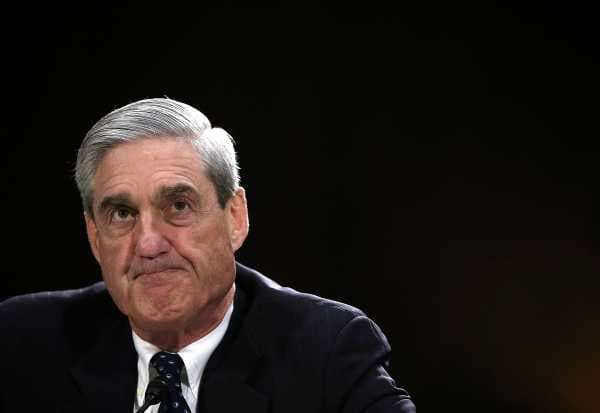
Here’s what actually happened, according to Cohen:
First, discussions about the Trump Tower Moscow project went deep into the presidential campaign — at least to June 2016 — and didn’t end that January as Cohen had previously stated. He also admitted that he spoke with Trump more than three times about the project — more than he confessed to before — and even briefed members of the president’s family.
What’s more, the court filing says Cohen and “Individual-2” — very likely Sater — “as late as approximately June 2016 … discussed efforts to obtain Russian governmental approval for the Moscow Project.”
Second, Cohen did consider traveling to Russia and taking Trump with him. Cohen also asked a senior campaign official about the possibility for Trump to take a business trip to Russia.
It gets worse: The Mueller filing contains several instances of Cohen and Sater (“Individual-2”) emailing in May 2016 about plans for Cohen’s trip to Russia. In one message, Sater tells Cohen that a Russian official wants to meet him at a conference and “possibly introduce him” to either the President of Russia or the Prime Minister of Russia, “as they are not sure if 1 or both will be there.”
He originally agreed to go. But on June 14, 2016, he told Sater that he wouldn’t be traveling to Russia after all. That’s interesting timing, as it’s the same day the Washington Post reported that Russia hacked into the Democratic National Committee’s computer network.
Third, Russian government officials did respond to Cohen’s inquiries about the Moscow project. Around January 14, 2016, Cohen emailed the office of “Russian Official 1” — almost certainly Dmitry Peskov, Putin’s press secretary and trusted adviser — seeking help with the tower deal.
“I am hereby requesting your assistance,” Cohen wrote. “I respectfully request someone, preferably you, contact me so that I might discuss the specifics as well as arranging meetings with the appropriate individuals.”
About six days later, an assistant of Peskov’s wrote back requesting that Cohen call. He did shortly after receiving the email, and they spoke for about 20 minutes in which he outlined ways the assistant’s office could help move the deal forward.
The Kremlin originally denied ever responding to Cohen, with Peskov saying on August 30 2017 that “we do not react to such business topics.” But on Thursday, shortly after Cohen pleaded guilty, Peskov changed the story. “Later we called and asked why they wanted to have meeting in presidential Administration and explained that we have nothing to do with construction issues in the City of Moscow,” he said in a statement.
So why would Cohen lie about the Trump Tower Moscow project?
Experts I talked to say Cohen had good reason to want to keep his efforts to develop the Trump Tower Moscow project under wraps: It just looks bad. A Trump representative trying to secure a lucrative business deal with Russians closely linked with Putin on Trump’s behalf during the 2016 presidential election — all while Trump was repeatedly championing better Washington-Moscow ties in campaign speeches — probably wouldn’t play well with congressional investigators.
So instead of telling Congress and others the truth, Cohen chose to lie.
But now, he’s come clean. It’s possible Cohen confessed about the Trump Tower Moscow efforts in hopes of reducing his punishment for lying to Congress. ABC’s George Stephanopoulos reported on Thursday that Cohen will now provide “dozens of hours of testimony potentially damaging to” Trump.
Trump, however, still defends his company’s push to make a deal in Russia.
“There was a good chance that I wouldn’t have won [the election], in which case I would have gone back into the business,” he told reporters on Thursday. “And why should I lose lots of opportunities?”
Mueller may see things differently.
Sourse: vox.com


